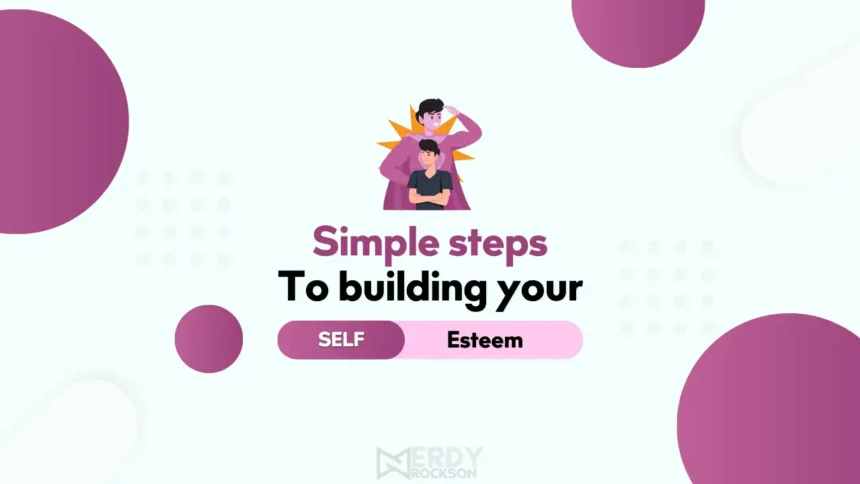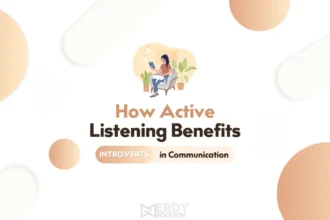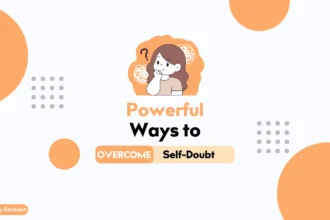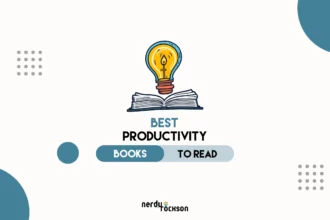How you perceive yourself can make or break your success and contentment in life. Therefore, learning how to effectively boost your self-esteem is not just a valuable endeavour, it’s a necessity. The importance of having a robust sense of self-worth encapsulates every segment of one’s life, influencing relationships, decision-making, and even health.
Research shows that low self-esteem significantly increases the risk of mental health issues, with 70% of individuals diagnosed with depression having low self-esteem [1]. Another research shows that Only 15% of people with high self-esteem experience job burnout, compared to 48% of people with low self-esteem.[2]
This article will provide you with a clear, four-step strategy to build the kind of self-esteem that can propel you forward, both personally and professionally. By following these guidelines, you’ll not only be helping yourself, but you’ll become an inspiration for others around you. Before we dive in, let’s know what self-esteem is.
What’s Self-esteem?
Think of self-esteem as a mirror that reflects your perception of yourself. It’s the aggregate of your thoughts and feelings regarding your worth and importance. It’s how you see and think about yourself, and the kind of sentiments and attitudes you harbor in your psyche.
When you have high self-esteem, you tend to perceive life positively, recognizing your inherent value. You believe in your capabilities and aren’t easily swayed by external factors. Life’s ups and downs may influence you, but they never define you. Your belief about yourself defines you.
On the flip side, if you struggle with low self-esteem, everyday hurdles may appear insurmountable. You judge yourself harshly, focus heavily on your shortcomings, and find it difficult to accept compliments or positive feedback. It can be a tough cycle to break out of, but with steadfast effort and the right mindset, building your self-esteem is within reach.
So! Why is this important?
Self-esteem is fundamental to our mental well-being. It influences how we relate to others, make decisions, and view our possibilities. High self-esteem equips us with the resilience to bounce back from setbacks and maintain an optimistic approach to life. Remember, the path to building your self-esteem is a journey, not a race. With each step forward, you’re growing and developing, becoming the best version of yourself.
Simple steps to building your self-esteem
Now, let’s dive right in and explore the four definitive steps to building your self-esteem with effective strategies and practices.
1. Recognize Your Triggers
Self-awareness is key when it comes to building your self-esteem. This starts with recognizing your triggers – those situations, interactions, or thoughts that make you feel insecure or inadequate. These triggers often stem from past experiences and deeply embedded beliefs about ourselves. They can effectively tug at the corners of our confidence, causing it to crumble. But fret not, here is how you can start recognizing your triggers:
- Reflect debrief: Take a few minutes at the end of each day to reflect on your emotions and thoughts. Were there moments when you felt your self-esteem drop? What were you doing, who were you with, and what thoughts were running through your mind?
- Journaling: Keeping a journal can make the reflection process more tangible. Plus, it allows you to look back and identify patterns or recurring situations that affect your self-esteem.
- Mindfulness: By practising mindfulness – in other words, being present in the moment – you become more aware of your emotional responses as they happen. This can help you identify triggers in real-time, rather than retrospectively.
Remember, identifying your triggers does not mean avoiding them. It’s about understanding them, so you can confront and overcome them. After all, building your self-esteem is an internal process and it’s all about how you perceive and react to your environment.
2. Shift the Momentum
Ever felt like you’re stuck in a whirlpool of negativity? Hey, we’ve all been there. It’s almost like you’re being swept away by a strong river current, isn’t it? But here’s what we need to understand – we have the power to change the direction of this current. It’s all about shifting the momentum.
Firstly, it’s essential to permit yourself to be human. You’re not perfect, well, nobody is and that’s perfectly okay. You have the right to make mistakes, learn, and grow from them. Embracing this fact will help you let go of unnecessary burdens and free yourself from the clutches of low self-esteem.
Only when we are brave enough to explore the darkness will we discover the infinite power of our light.
Brenee Brown
Now, let’s talk about how you can shift the momentum. From every difficult situation, instead of focusing on the negative aspects, consciously shift your thought process to find the silver lining. Essentially, you’re retraining your brain to think positively.
- Practice gratitude: At the end of each day, list down at least three things you’re grateful for. They don’t have to be groundbreaking, even little things count.
- Speak kindly to yourself: Encourage and motivate yourself. Treat yourself as you would a friend. Challenge negative self-talk with positive affirmations.
- Embrace self-care: Do things that make you happy and relaxed. This could be reading a book, taking a walk, meditating, or listening to your favourite music.
Remember, shifting the momentum is not about ignoring your problems, it’s about acknowledging them and choosing to focus on what you can control and improve. It’s about looking at your challenges as opportunities for growth.
Essentially, shifting the momentum requires time, patience, and persistence. But keep at it, and gradually, you’ll start noticing a positive shift in your self-esteem.
3. What You Say Matters
Now, that you’ve identified your triggers and started shifting momentum, it’s time to understand the profound influence of your words. The language you employ, both verbally and internally, can have a significant impact on how you perceive yourself. So, in the quest for bolstering self-esteem, remember, what you say truly matters.
Develop positive self-talk. The chatter that occurs in your head plays a crucial role in shaping your self-esteem. Negative self-talk like “I’m not good enough” or “I always mess things up” can be detrimental, fostering a poor self-image. Replacing these with affirmations such as “I am capable” or “I can learn from my mistakes” can transform your outlook on yourself and the world.
- Start by listening to your self-talk. Pay attention to the narrative you continually tell yourself. Is it predominantly positive or negative?
- Use mindfulness to identify negative self-talk. Whenever negative thoughts creep in, take a moment to recognize them. Don’t rush to judge or cast them away; simply acknowledging their presence can help you gain control over them.
- Finally, replace these with affirmations. Begin laying the groundwork for a more positive self-image by supplanting negative self-talk with affirmations. Over time, this practice will nurture a healthier and stronger self-esteem.
Speak positively about yourself to others. This doesn’t mean bragging about achievements or talents, but rather highlighting your strengths to yourself and others when the opportunity arises. Never underestimate the potency of the spoken words. If you continuously talk positively about yourself, both you and those around you will begin to see you in a new, more positive light.
Remember, the words you utter have the power to build you up or knock you down. Ensure what you’re saying aligns with the person you are striving to become.
In conclusion, by becoming more aware and in control of what you say, you can significantly impact your self-esteem and eventually, your life.
4. Create Positive Relationships
Laying the foundation of healthy relationships greatly contributes to constructing self-esteem. Human interactions play a vital role in how we perceive ourselves. Hence, it is pivotal to seek individuals who reflect positivity and treat you with respect.
So, how can you actively foster positive relationships to bolster your self-esteem? We’ve captured key actions to incorporate in your journey:
- Set clear boundaries: Learn to say ‘No’ when you need to. Define your personal space and expect others to respect it.
- Communicate effectively: Clearly express your thoughts and feelings. Remember, it’s your right to have your views heard- it validates your self-worth.
- Genuinely listen: Provide your full attention to others when they are communicating. This not only makes them feel valued but also boosts their self-esteem by being helpful and considerate.
- Give and take feedback: Embrace constructive criticism and provide thoughtful feedback in return. This interaction helps you grow as a person and increase your self-esteem.
You might be wondering “Why is this necessary? Can’t I skip this step?” The truth is, the quality of relationships has a direct impact on your self-esteem. Here’s how:
| Positive Relationships | Boosted Self-Esteem |
|---|---|
| Nurture a sense of belonging | Improves self-worth |
| Provide support during tough times | Enhances self-efficacy |
| Encourage personal growth | Boosts self-confidence |
“Having quality relationships doesn’t mean that you must have a large social circle. A few heart-to-heart relationships are sufficient to nurture your self-esteem!”
In conclusion, never underestimate the power of positive relationships. They are the mirrors that genuinely reflect your worth. Incorporate these suggested actions in your day-to-day life and see the change in your self-esteem. Remember, the journey of building your self-esteem is not a sprint but a marathon. Be patient and persistent!
Books for building self-esteem
Here are two books that can significantly help you in your journey to build strong self-esteem:
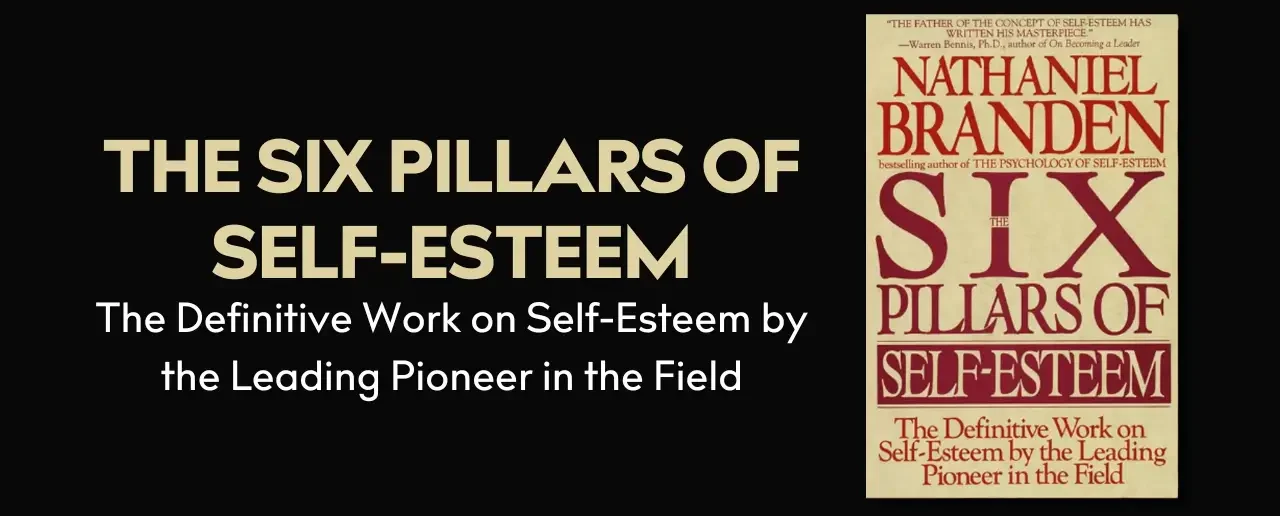
The Six Pillars of Self-Esteem by Nathaniel Branden
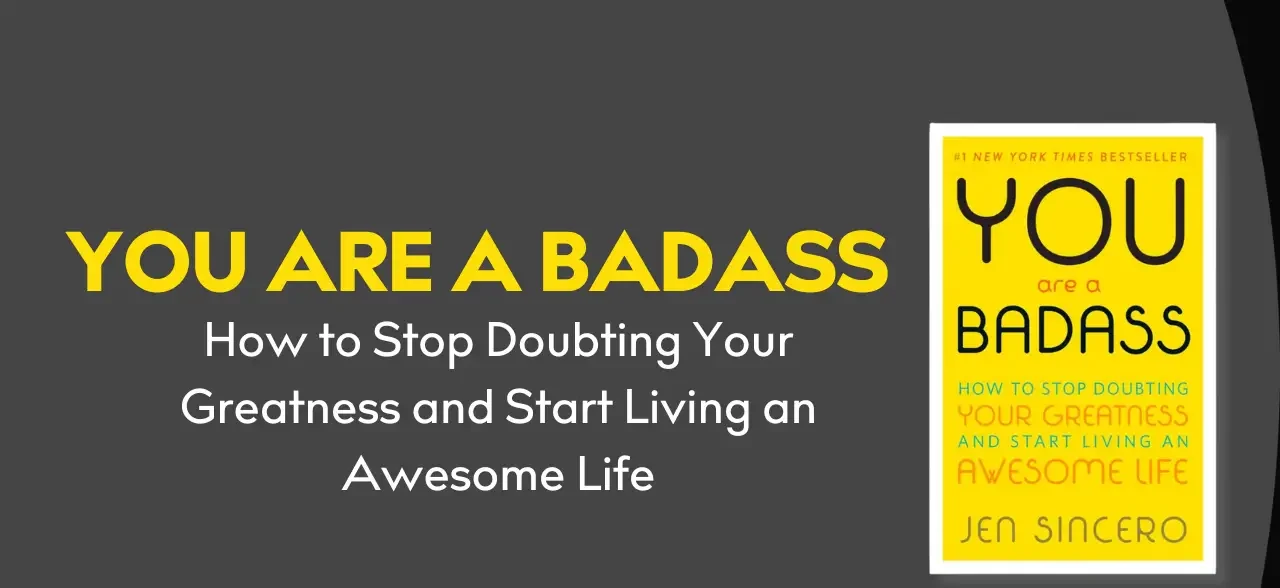
You Are a Badass
Conclusion
In conclusion, building your self-esteem is a journey, not an overnight turnaround. It calls for commitment, patience, and unwavering determination. Remember – the aim here is not to become perfect, but to accept yourself as you are while working towards becoming the best version of yourself.
You now have a strategic roadmap laid out in four steps: recognizing your triggers, shifting the momentum, and acknowledging the significance of what you say to milestones.
| Steps | Actions |
|---|---|
| Recognize Your Triggers | Unearth what causes your self-esteem to drop and note them down. |
| Shift the Momentum | Shift your focus from the negatives to the positives. |
| What You Say Matters | Assure yourself with supportive words and eliminate all negative self-talk. |
| Create Positive Relationships | Surround yourself with supportive, positive people who enhance your well-being. |
At every juncture of your journey, recall these steps and monitor your progress. It’s not an easy road, but the strides you make, step by step, are precious triumphs that gradually build you up.
In the grand scheme of it all, remember the ingrained power within you. With each step, you’re reclaiming your worth, your light, and your power, effectively building your self-esteem. Be proud of every little achievement.
Celebrate you. Revel in the progress. Above all, love yourself. As you proceed in these steps, you are not alone. Keep walking, keep growing, and most significantly, keep believing in yourself. It’s within you, and it begins now.

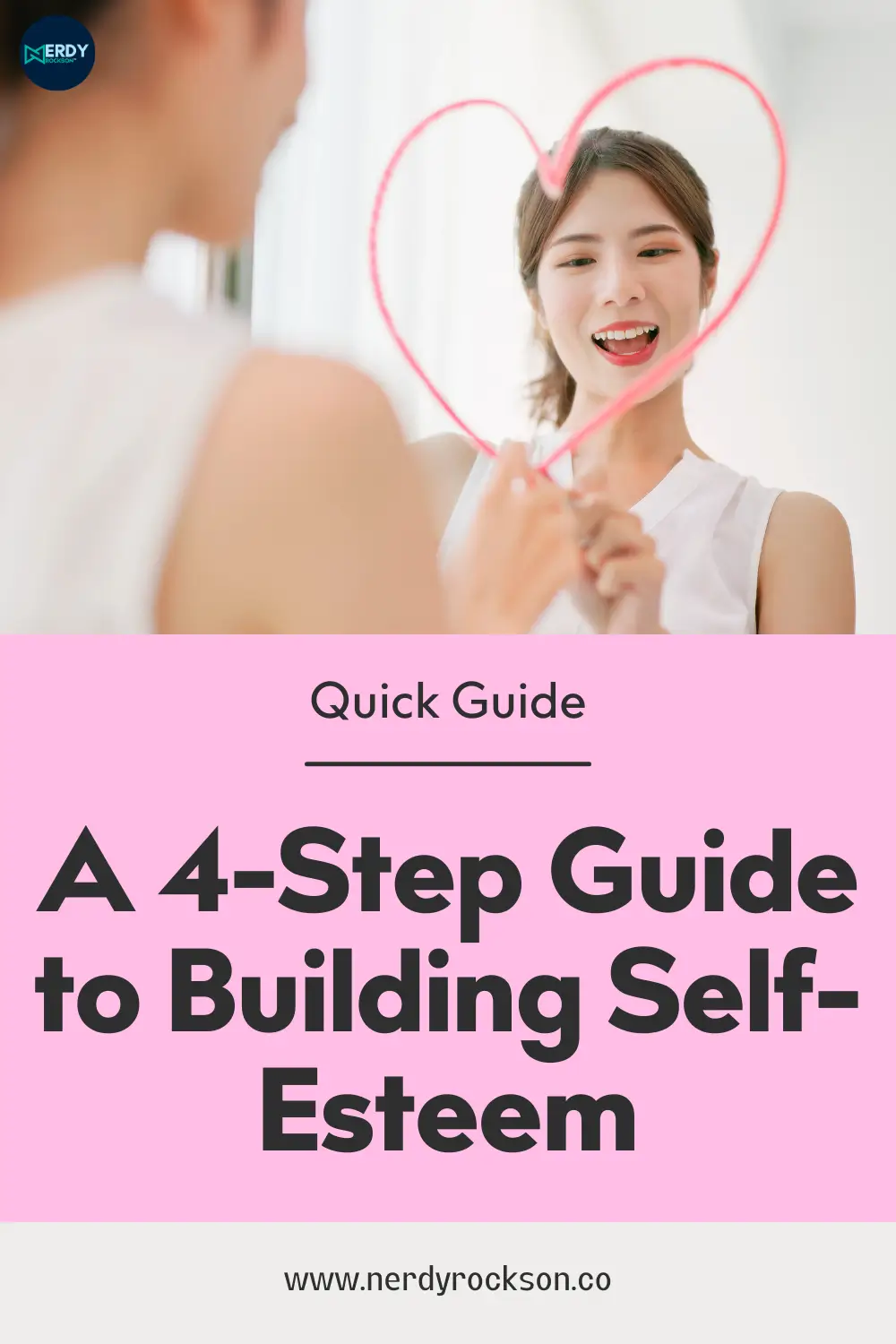

Frequently Asked Questions
What exactly is self-esteem?
Self-esteem is a multifaceted psychological concept, fundamentally concerning our perception of our self-worth. It’s the construct through which we judge our self-value and abilities, thereby profoundly influencing multiple aspects of our lives, ranging from personal dispositions to social and professional interactions. It’s of utmost importance to nurture a positive yet realistic self-esteem, enabling us to confront life’s challenges with a balanced perspective and steer towards achieving our goals with confidence.
Why is self-esteem important?
Self-esteem is of prime importance as it profoundly influences people’s choices and decisions. In essence, it allows you to respect yourself, while understanding and accepting your strengths and weaknesses. It’s a key ingredient to overall happiness, mental health, and a positive attitude towards life. High self-esteem enables you to deal constructively with life’s challenges, developing resilience and better coping mechanisms. Fundamentally, cultivating a robust sense of self-esteem is akin to armour against life’s adversities.
Can self-esteem be too high?
Indeed, having an overly high self-esteem can not be beneficial. It might lead to behaviours encompassed by arrogance and narcissism, where a person may start believing they are superior to others or deserve special treatment. This inflated sense of self-importance can disrupt personal relationships and hinder personal growth as it prevents recognition of personal flaws and opportunities for improvement. Therefore, it’s crucial to maintain a balanced self-esteem; neither too low nor excessively high.
Does self-esteem affect mental health?
Indeed, self-esteem plays a pivotal role in one’s mental health. Low self-esteem can become a breeding ground for negative thoughts and can often lead to conditions such as depression and anxiety. Conversely, a healthy level of self-esteem can act as a protective factor, allowing individuals to handle stress better and maintain good mental health. However, over-inflated self-esteem may also carry its drawbacks, potentially leading to narcissistic attitudes or lack of empathy. Therefore, achieving a balanced level of self-esteem is crucial in the journey towards robust mental wellbeing.
